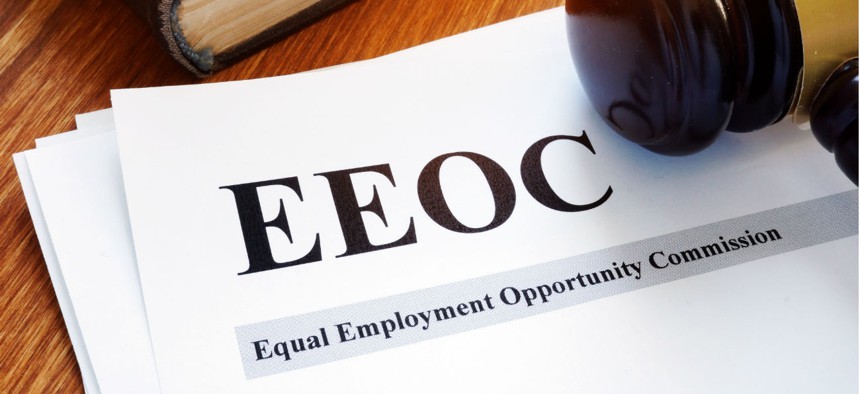
By designer491 / Shutterstock.com
EEOC Makes It Easier for Feds to File Discrimination Appeals
New tool allows feds to "finally" manage cases online, leveling the playing field with agency attorneys.
Federal employees will have an easier time following up on discrimination complaints against their agencies with the creation of a new online tool.
While non-federal workers could long file claims with the Equal Employment Opportunity Commission online, EEOC just launched the portal for feds on Tuesday. The new tool will enable federal employees to make adjustments to their cases, add information and request hearings.
In addition to filing requests for hearings and appeals, employees can update their contact information, add attorney data, check the status of their cases and respond to an agency’s request to engage in alternative dispute resolution. Employees enrolled in the portal will receive email notifications whenever new information has been added to their cases.
"This secure online system is a faster and easier way for federal employees, agencies and the EEOC to communicate, send and receive documents, and track case status," EEOC Chair Janet Dhillon said. "We expect it to greatly improve the efficiency and transparency of the EEOC's hearings and appeals of discrimination complaints brought by federal employees and applicants."
Federal employees still cannot file an initial charge against an agency through the online portal. That must occur though the agency’s internal equal employment opportunity program. Initial submissions of evidence of discrimination and requests for EEO counseling must still go through that process as well.
EEOC published several user guides and frequently asked questions pages to help feds navigate the online tool. Employees can continue to request hearings, file appeals and otherwise manage their cases through writing and mailing paper documents, though EEOC cautioned that approach would delay the process.
“The portal is the fastest and easiest way for all parties to communicate, send and receive documents, and track case status,” the agency said.
Attorneys can manage employees’ cases online once their names have been added to the case. Authorized agency representatives can also see all information submitted into a complainant’s case. The online tool will notify an agency whenever a request for a hearing or appeal has been filed, saving the employee from having to separately mail notifications to both EEOC and the agency, as was previously the case.
Agency attorneys already had their own online portal, according to Heather White, a partner at the Federal Practice Group, but it was not available to employees making claims. Complainants and their representatives in recent years have made all their filings and communications via email, leaving employees to “stress about file size” and the disparate requests from various EEOC administrative judges.
“Obviously it’s better to be able to upload it quickly to the system and go home and have dinner,” White said. “It’s good to at least finally be online and not be at a disadvantage on filings.”
White noted the Merit Systems Protection Board, the other main agency through which federal employees can launch complaints against their agencies, has maintained an e-filing system for years. EEOC’s portal, which it has slowly rolled out over the last few weeks, still has some needed improvements, White said. She noted it was surprising it had taken this long for EEOC to stand up an e-filing system of its own, and she was “little shocked” at the rudimentary nature of the system.
“I’m sure there will be many upgrades,” she said.







